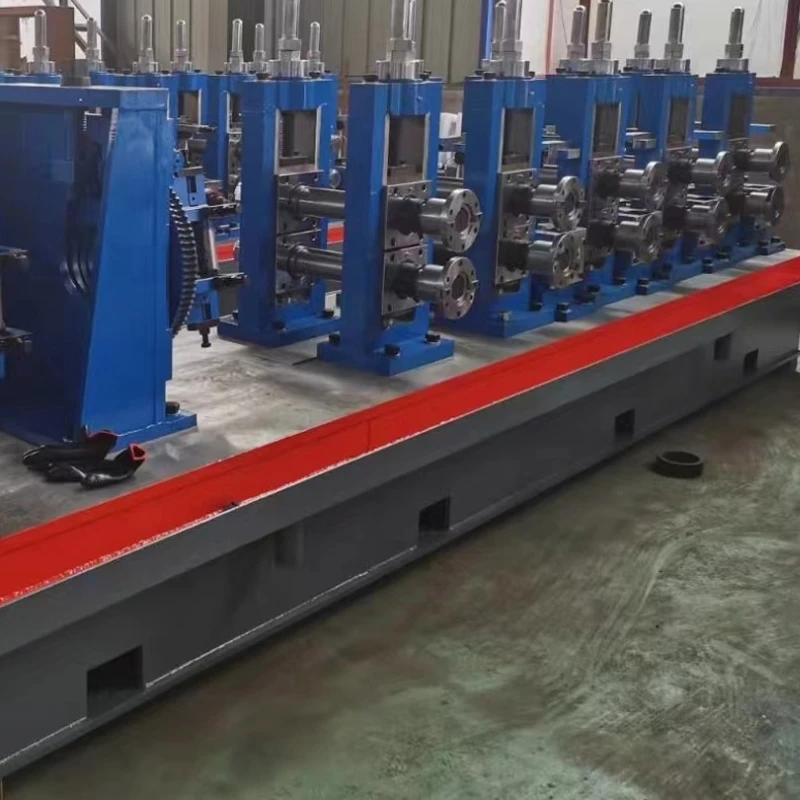Plastic Pipe Production Equipment for Efficient Manufacturing Solutions and High Quality Output
The Evolution of Plastic Pipe Manufacturing Machines
Plastic pipes have revolutionized various industries, from construction to agriculture, due to their lightweight, durability, and resistance to corrosion. At the heart of this transformation lies the technology of plastic pipe manufacturing machines, which have evolved significantly over the years to meet increasing demand and improve efficiency.
The Importance of Plastic Pipes
Before delving into the machinery, it is crucial to understand the significance of plastic pipes. These pipes are predominantly made from materials such as polyvinyl chloride (PVC), polyethylene (PE), and polypropylene (PP). Their versatility allows them to be used in numerous applications including water supply systems, drainage solutions, gas distribution, and industrial processes. The lightweight nature of plastic pipes makes them easier to handle and install compared to traditional materials like metal and concrete.
The Technological Advancements in Manufacturing Machines
The production process of plastic pipes involves several stages, including extrusion, molding, and cutting. Plastic pipe manufacturing machines are designed to automate these processes, which enhances production rates and ensures consistency in product quality.
1. Extrusion Machines At the core of plastic pipe manufacturing is the extrusion machine. This equipment melts raw plastic pellets and forces the molten material through a die to form a continuous pipe. The extruder’s design and technology have advanced over the years, with modern machines featuring more efficient heating and greater control over the material flow. Innovations such as co-extrusion allow manufacturers to create pipes with layered structures, enhancing their physical properties like strength and flexibility.
2. Cooling Systems Once the plastic is extruded, it needs to cool down and solidify. Today’s manufacturing machines are equipped with sophisticated cooling systems that utilize water baths, spray cooling, or air cooling techniques to ensure the pipes maintain their shape and integrity during the cooling phase.
plastic pipe manufacturing machine

3. Cutting and Finishing Machines After cooling, the pipes are cut to the desired lengths, a process that can be automated through the use of advanced cutting machines. These machines ensure precision and speed, reducing waste and improving production efficiency. Furthermore, additional finishing processes such as marking and quality inspection can be integrated into the production line, ensuring consistency and compliance with strict industry standards.
Automation and Industry 4.0
The rise of automation and the principles of Industry 4.0 have significantly influenced plastic pipe manufacturing. Smart machines equipped with sensors and IoT technology enable real-time monitoring and adjustments during the manufacturing process. This leads to higher efficiency and reduced downtime, as potential issues can be detected and addressed promptly.
Moreover, data analytics allows manufacturers to optimize their production processes continually. By analyzing patterns in production data, companies can identify bottlenecks, assess machine performance, and streamline operations, ultimately leading to increased profitability.
Sustainability and Recycling
In response to growing environmental concerns, manufacturers are now integrating sustainable practices into their operations. Advanced plastic pipe manufacturing machines can utilize recycled materials, reducing the demand for virgin resources and minimizing waste. Innovations in the recycling of plastic materials mean that end-of-life pipes can be repurposed into new products, closing the loop in the plastic lifecycle.
Conclusion
The evolution of plastic pipe manufacturing machines is a testament to the industry’s commitment to innovation and efficiency. As technology advances, these machines will continue to play a crucial role in producing high-quality plastic pipes that meet the rising demands of various applications. The integration of automation, sustainability, and smart technologies ensures that the manufacturing process not only keeps pace with market needs but also contributes to a more sustainable future. As industries continue to grow, plastic pipes will remain integral to infrastructure development, proving that the machines that produce them are just as important as the materials themselves.
-
High Frequency Straight Seam Welded Pipe Production Line-BzZhou Xinghua Machinery Equipment Manufacturing Co., LTD.|Precision Welding, High EfficiencyNewsJul.30,2025
-
High Frequency Straight Seam Welded Pipe Production Line|BzZhou Xinghua|Precision Welding&EfficiencyNewsJul.30,2025
-
High Frequency Straight Seam Welded Pipe Production Line - BzZhou Xinghua|Precision Engineering&EfficiencyNewsJul.30,2025
-
High-Frequency Straight Seam Welded Pipe Production Line-BzZhou Xinghua Machinery Equipment Manufacturing Co., LTD.NewsJul.30,2025
-
High-Frequency Straight Seam Welded Pipe Production Line-BzZhou Xinghua Machinery Equipment Manufacturing Co., LTD.|Precision Manufacturing, High EfficiencyNewsJul.30,2025
-
High Frequency Straight Seam Welded Pipe Production Line-BzZhou Xinghua Machinery Equipment Manufacturing Co., LTD.|Precision Steel Pipe Manufacturing&Industrial EfficiencyNewsJul.29,2025


